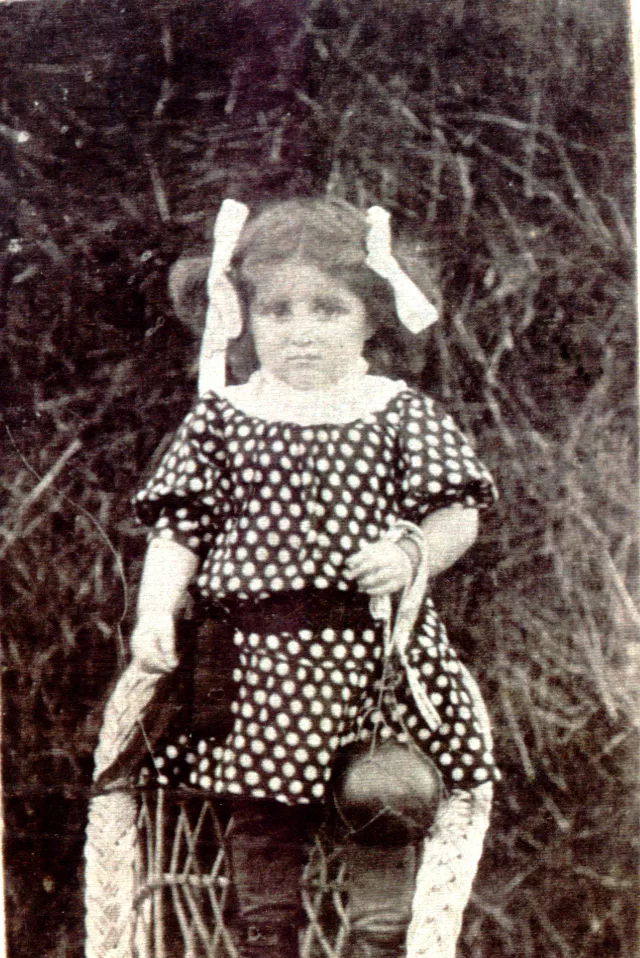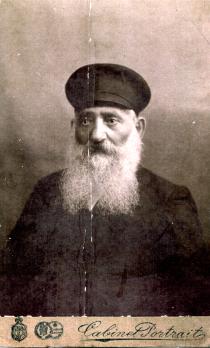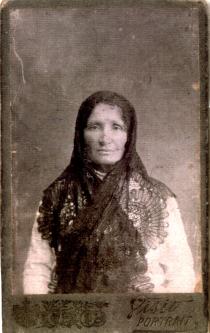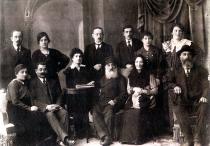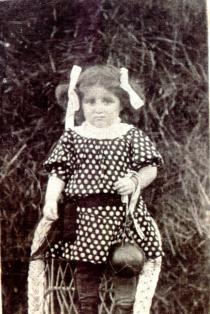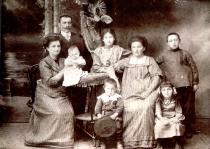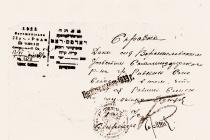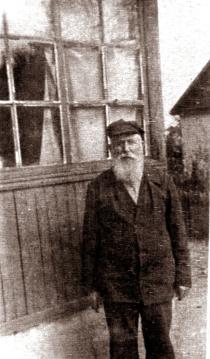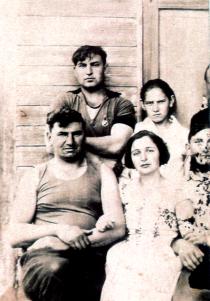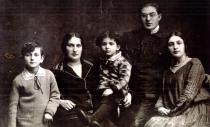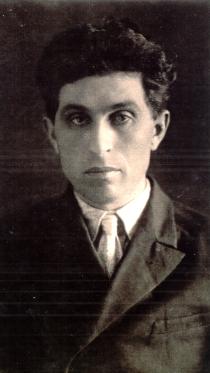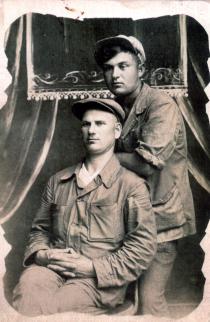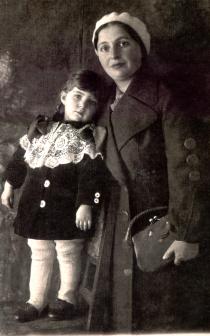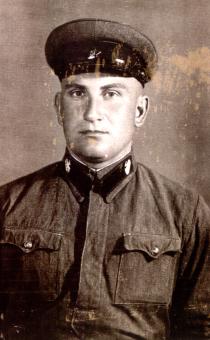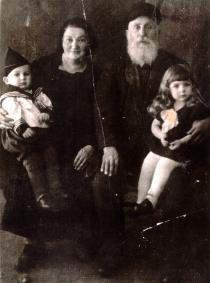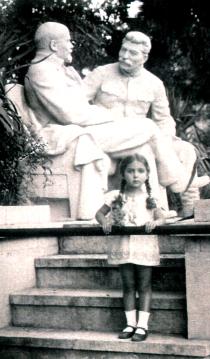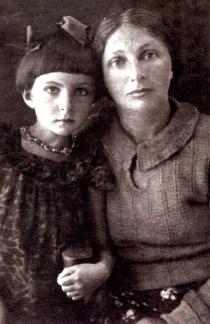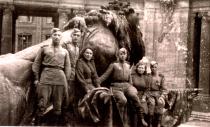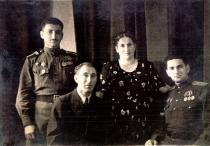This photo of my mother, Sofia Rivkina, was taken in the Jewish colony in Novo-Vitebsk in the region of Dnepropetrovsk in 1908, when my mother was two years old. The picture was taken in winter, in the shed with hay in the background. My mother is freezing and doesn't look very happy about having her picture taken. the photo is signed 'Sonichka on 26 December 1908. To Luba Dreitser.'
My mother Sofia was born in 1906, the fourth of six children.
My mother and her brothers were enthusiastic about the revolution. My grandparents were more considerate about it although their family was not that wealthy. My parents didn't stay long in Gorlovka. They lived in a huge wooden barracks with many rooms on both sides of a long corridor. Mama worked as a typist at the Department of Mines and my father had logistics work. They got along well with their Russian and Ukrainian neighbors. Soon my parents moved from Gorlovka to Enakievo. Mama was a housewife, and Papa worked at the headquarters of the mine 'Red Profintern' located in Verovka in the outskirts of Enakievo. I was born in 1936.
Our family lived in a small, shabby wooden house at 139 Partisanskaya Street. We shared this house with another family that occupied half of the house. I know about the pre-war years from what Mama used to tell me. Mama said that even when Hitler came to power in Germany, nobody believed that he would enter into a war against the USSR. State propaganda convinced people that the country was so strong, it wouldn't occur to anybody to attack us. If it ever happened, we would win a prompt victory and defeat our enemy. Adults and children believed this. Children were raised with patriotic feelings. I didn't go to kindergarten, but I knew from my childhood that besides my family, I had two other grandfathers - Grandaddy Lenin and Grandaddy Stalin. Mama taught me patriotic poems. I remember one: 'I'm a little girl dancing and singing, I've never seen Stalin, but I love him.'
My father and uncles were summoned to the front in the first few days of the war. Mama and I moved to Gorlovka - it was too terrifying to stay in Enakievo. Then we went on to Fergana in the Uzbek SSR. At first we lived in a covered wagon in Beshbala on the outskirts of Fergana. Later we moved to a rented room in Fergana.
I remember going to the post office every day to check whether there was any mail for us. I was a little girl and they recognized me at the post office and gave me all our family's letters. Papa's letters were rare and he perished in 1943. Mama wanted to send a photograph of us to Papa, but we didn't know the number of his field mail. We kept the photo and Mama used to say that we would send it soon. In 1943 after the Stalingrad battle we received the notification that my father had been killed.
Mama and grandmother worked at home for a shop, knitting socks and gloves to send to the front. Once a week they took their finished products to the shop and received yarn for the next order.
I remember Victory Day, May 8, 1945. People in the streets were crying, laughing and kissing. There were fireworks in the evening, the first fireworks I had ever seen in my life. I didn't understand why Mama was crying when everybody around was laughing. Mama was thinking about Papa . The war was over and we had to think about going back home. Mama was so weak that she couldn't walk. My grandmother was afraid that our trip back might be too much for Mama. In 1946 my mother's brother Foya came to pick us up.
Mama and I went to Enakievo. Or house was destroyed. It just collpased from old age. The roof fell down and the windows were broken. But we moved in there anyway. In 1948 uncle Foya came to Enakievo and took me and Mama to Chernovtsy. Mother died in 1992.
Bella Kisselgof 's mother Sofia Rivkina as a child
The Centropa Collection at USHMM
The Centropa archive has been acquired by the United States Holocaust Memorial Museum in Washington, DC.
USHMM will soon offer a Special Collections page for Centropa.
Academics please note: USHMM can provide you with original language word-for-word transcripts and high resolution photographs. All publications should be credited: "From the Centropa Collection at the United States Memorial Museum in Washington, DC". Please contact collection [at] centropa.org.
